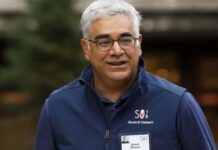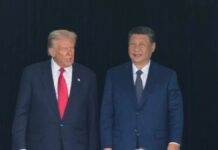Bill Gates. India’s capabilities have impressed me time and again. Like the subcontinent with a population of about 130 crores, this country has overcome difficult challenges on the health front.
In this episode, India has now achieved another unforgettable achievement by administering more than one hundred crore anti-Covid vaccines. This vaccine campaign was huge as well as fast paced. More than 73 percent of India’s population has been given the first dose of the vaccine. At the same time, 30 percent people have taken both doses. Of these, 48 percent are women. The analysis of this success of India is very important for two reasons. One is that this encouraged India to move forward with continuity on this front. Second, learning from India’s experience, other countries can adopt it according to their circumstances.
As far as India’s success points are concerned, the first turn will come of strong political will. It was commanded by Prime Minister Narendra Modi himself. He set a target of immunization of all adult Indians by December 31 this year.
The other leaders responded immediately to his call. For this purpose, high-level committees were formed, which prepared the roadmap for the research and development and manufacturing of the vaccine, as well as planned a phased supply of the vaccine across the country. It started with giving preference to the most at-risk categories.
The second point of India’s success is linked to India’s proficiency in immunization. India has successfully carried out several massive vaccination campaigns. India’s universal immunization program is one of the most elaborate government expenditures on health in the world. In India, 27 million newborns are immunized every year.
At the same time, booster doses are given to more than 10 crore children of one to five years of age every year. There are about 27,000 cold chain facilities in India. These astonishing figures show that there has been continuous investment year after year to build an efficient and effective health system.
A system that can provide health services even in remote and remote areas. This infrastructure proved crucial during the pandemic. At present there are about 3,48,000 government and 28, 000 private centers are engaged in Kovid-19 vaccination.
These include all the inaccessible areas of the North and Northeast. The 23 lakh ASHA and Anganwadi workers operating in India were also trained as professional health workers to ensure smooth immunization of COVID-19 in the country. The third aspect of this success lies in capitalizing on India’s expertise in the development and production of vaccines and vaccines.
Indian vaccines have saved millions of lives across the world from diseases like meningitis, pneumonia and diarrhoea, even before the Covid pandemic.
We are proud that our foundation has worked closely with many manufacturers, including the Government of India, to make these vaccines safely and affordable to many countries from different parts of India to low- and middle-income countries.
These include institutions like Serum Institute, Bharat Biotech and BIOE. Now made in India Covishield and Covaccine are providing protection against COVID-19 to Indians.
India has used its information technology power to digitally monitor the vaccination campaign. An open source platform like Covin is a good example of this, which contains a variety of information and information related to vaccination.
This platform will be able to make other health related campaigns meaningful in India. Such platforms will be useful for other countries as well.
Indians have made COVID-19 vaccination a success with their participation. Learning from the experiences gained in eradicating polio, the central and state governments focused on mobilizing the people.
To make people aware, all possible measures were taken, which also got the expected results. People’s hesitation about the vaccine was broken. For this ‘Vaccine Festival’ was also organized, in which people participated enthusiastically.
Despite all this progress, we may not be comfortable until most people in the world are vaccinated. We also have to be careful with the new variants of Corona.
The uneven distribution of vaccines is also worrying. Less than three percent of the population of low-income countries have received the vaccine. The answers to these questions lie in greater vaccine development and their faster production.
For this, the global manufacturing capacity of the vaccine will have to be sharpened. India is ready to contribute by playing a major role in this through activities like COVAX and Vaccine Maitri.
India gives me hope, as it has shown how a country is able to protect its people through strong leadership and continued investment in the healthcare system.
Nothing can be done about the tragic time that has passed, but the time to come can definitely be preserved.











